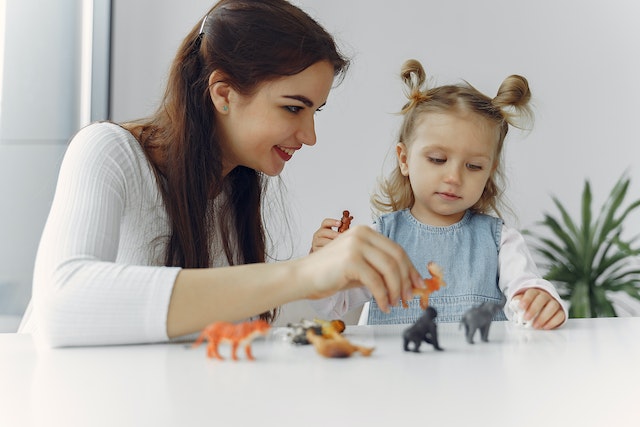Playtime isn’t just about having fun. For young children, it is a fundamental aspect of their development, providing countless opportunities for growth and understanding. Through play, children learn essential life skills, from problem-solving and communication to creativity and empathy.

Dive into this blog post to discover the invaluable benefits of play in child development.
1. Enhancing Cognitive Abilities
At centers like Tribe Early Learning, play is regarded as a crucial tool for fostering cognitive abilities. Interactive games, puzzles, and pretend play challenge children’s thinking patterns, encouraging them to ask questions, form hypotheses, and seek answers.
For instance, building a tower with blocks may seem simple, but for a toddler, it’s an exercise in geometry, balance, and prediction. When they predict the tower’s fall, they’re essentially testing a hypothesis. Over time, these playful experiments can foster a deep love for learning and critical thinking.
2. Boosting Emotional And Social Skills
The playground isn’t just for physical play; it’s a complex social arena. Through group games, children learn how to cooperate, share, negotiate, and sometimes, handle rejection or disappointment.
Role-playing games also enable children to walk in someone else’s shoes, promoting empathy and understanding. As they pretend to be firefighters, doctors, or teachers, they are learning about different societal roles and the emotions attached to them.
3. Improving Physical Health And Coordination
Physical play, such as running, jumping, or dancing, not only ensures that children are active and healthy but also enhances their motor skills. Simple activities like catching a ball can improve hand-eye coordination, while games like “Simon says” can sharpen reflexes. Regular physical play also aids muscle development, agility, and overall physical stamina.
4. Encouraging Creativity And Imagination
Whether it’s crafting a story around their toys or painting a picture, play stimulates children’s creativity. Through imaginative play, they build new worlds, come up with innovative solutions to problems, and express themselves without the boundaries of reality. This creative exercise during early years can pave the way for out-of-the-box thinking in the future.
5. Fostering Independence And Decision-making
When children play, especially when they play independently, they face numerous decisions. Should they build a bridge or a tunnel with their blocks? Should they draw a tree or a mountain?
With every choice they make, they become more confident in their decision-making abilities. Play provides a safe space to make decisions, learn from them, and try again.
6. Enhancing Communication Skills
Language skills aren’t only developed during reading or formal lessons. During play, especially in group settings, children communicate their ideas, express their feelings, and negotiate rules.
They also expand their vocabulary as they encounter different scenarios and objects. For children who are yet to speak, play can be an avenue to communicate through gestures, expressions, and actions.
7. Learning Resilience And Adaptability
Not all games go as planned. A tower of blocks can topple, or they might lose in a board game. These moments, albeit small, teach children about failure and resilience. Instead of giving up, they learn to try again, adapt their strategies, and understand that it’s okay to fail.
8. Providing Stress Relief And Relaxation
Amidst structured learning and the routines of daily life, play offers a breather. It’s a time when children can be themselves, devoid of any expectations or pressures. Play can serve as a therapeutic tool, enabling children to express their anxieties and emotions.
As they navigate through their play scenarios, they often process real-world events, making sense of their experiences and emotions.
9. Understanding The World Around Them
Through play, children replicate the world around them. By imitating adults, reacting to scenarios, or even observing the fall of a toy, they comprehend the workings of their environment. Play serves as a mirror to society, allowing children a glimpse into adult roles, societal norms, and the fundamental principles of cause and effect.
10. Cultivating Lifelong Learning Habits
A positive play experience can instill a sense of curiosity and a hunger for knowledge. Children who associate learning with fun are more likely to become lifelong learners, always eager to explore, ask questions, and expand their horizons.
Conclusion
Play is a child’s language and the key to unlocking their immense potential. It’s not just about the toys or games; it’s about the experiences, lessons, and memories crafted during these formative years.
As caregivers, educators, and parents, understanding the power of play can help us provide a rich, nurturing environment where children can thrive. Embrace the chaos, the laughter, and even the occasional tears, for through play, we set the foundation for a brighter, more informed future.